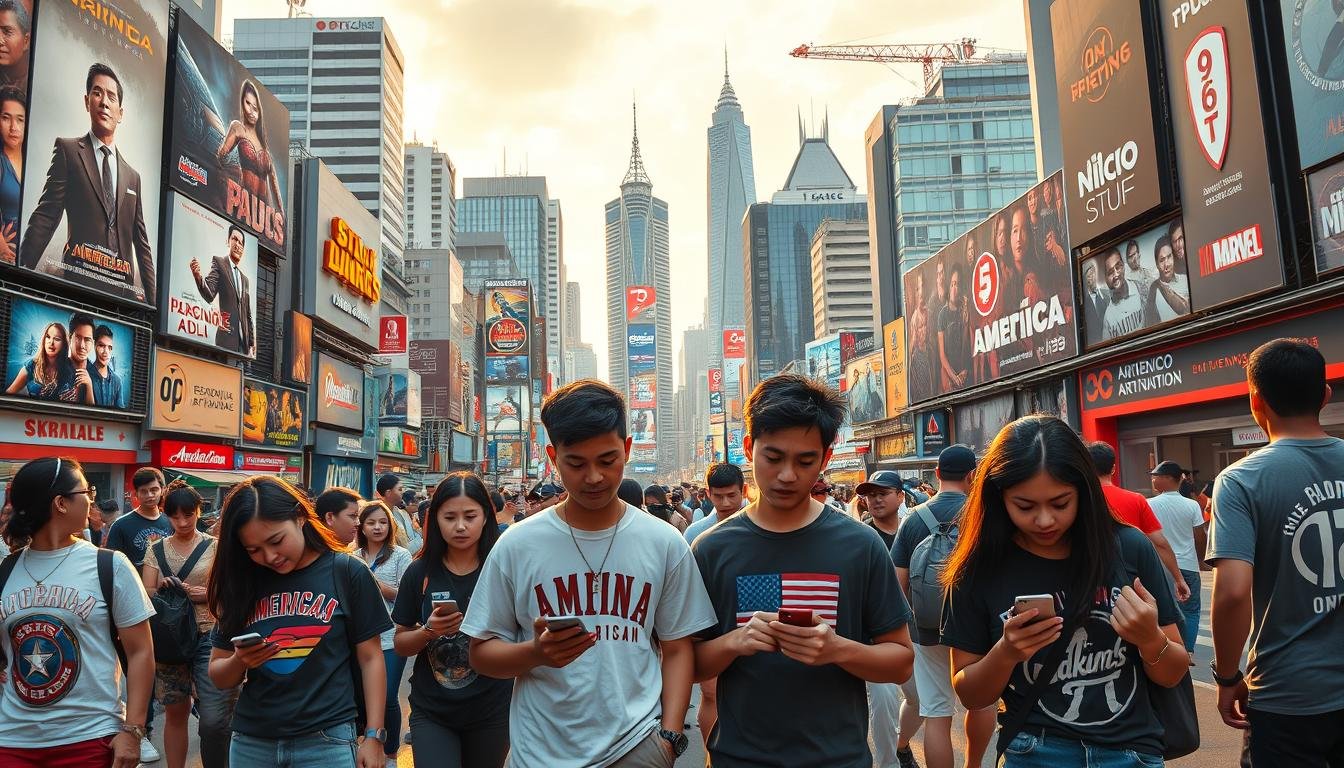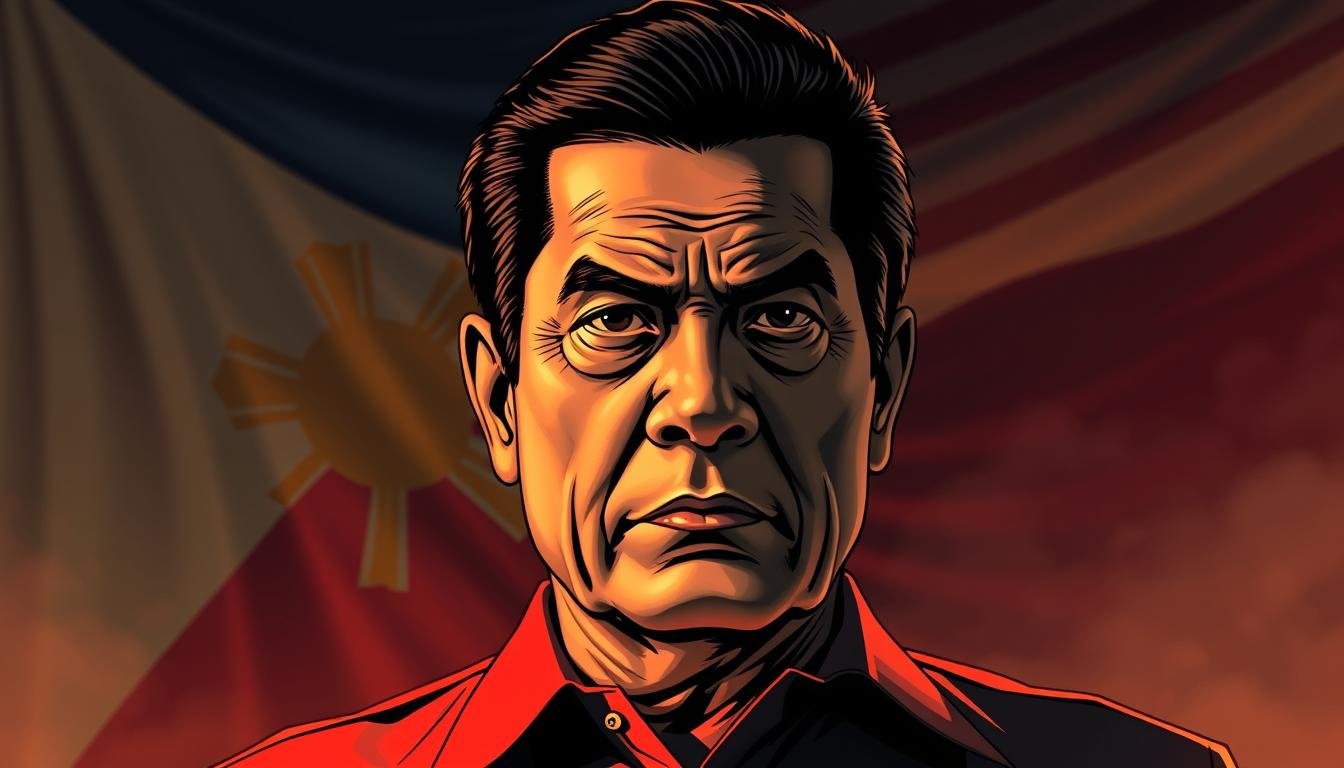The post-war era marked a turning point in the history of Filipino culture. After World War II, the Philippines experienced a wave of change that reshaped its artistic landscape. This period became a catalyst for innovation, blending traditional forms with modern influences. Music, as a universal art, played a vital role in expressing the nation’s…
The Impact of American Popular Culture on Filipino Society
American popular culture has deeply influenced Filipino society in many ways. From media and technology to art and traditions, the impact is undeniable. This connection dates back to historical ties and continues to evolve in the modern digital age. Filipino customs and values have blended with American symbolism and language. For example, American TV shows,…
The Impact of Martial Law on Filipino Culture
In September 1972, Ferdinand Marcos declared martial law. This had a huge impact on Filipino culture. It led to many human rights abuses, like arrests, torture, and killings. This period changed how the government kept order. It also affected the economy and people’s lives. Martial law made crime rates drop but also banned strikes, changing…
The Development of Filipino Theater in the Post-War Era
The post-war period marked a transformative era for Filipino theatre, as it became a powerful medium for cultural expression and identity. Rooted in ancient traditions, the art form evolved to reflect the nation’s resilience and creativity. This era saw the blending of local and international influences, shaping a unique Filipino theatrical experience. After World War…
The Human Rights Violations Under Martial Law
The Philippines has seen a dark time, with thousands facing human rights abuses under Martial Law. Martial law is meant for extreme threats, but in the Philippines, it led to many abuses. These include detention without trial, torture, disappearances, and killings. Over 11,103 people were tortured and abused during this time. This shows how deeply…
The Rise of Ferdinand Marcos: From President to Dictator
Ferdinand Marcos was the 10th president of the Philippines, ruling from 1965 to 1986. His rule was marked by a dictatorship that deeply affected the country. Marcos’s regime was known for its authoritarian rule and human rights abuses, leaving a lasting impact on Philippine history. As a key figure in Philippine history, Ferdinand Marcos’s rise…
The Declaration of Martial Law: A Turning Point in Philippine History
The Philippines declared Martial Law on September 23, 1972. This event started a 14-year rule by President Ferdinand Marcos. It deeply changed the country’s politics, economy, and society. To learn more, visit Philippine History and explore Martial Law’s complexities. The economy suffered a lot during Martial Law. Foreign debt rose from $278 million in 1965…
The Impact of the Cold War on Philippine Politics
The Cold War reshaped global politics, and its effects were deeply felt in the Philippines. As the United States and the Soviet Union vied for influence, the Philippines became a strategic battleground. This geopolitical rivalry influenced local political realignments and shaped the nation’s governance for decades. During this period, the Philippines strengthened its alliance with…
The Rise of Student Activism in the 1960s
The 1960s marked a turning point in history, where young people became powerful voices for change. This era saw the rise of student-led movements that challenged societal norms and fought for rights and equality. These activists were often ordinary individuals who dared to stand up against injustice, becoming symbols of hope and progress. Historically, activism…
The Rise of the Hukbalahap Rebellion
The Hukbalahap movement emerged as a defining force in Philippine history during World War II. Formed in 1942, it began as a response to the Japanese invasion and quickly evolved into a powerful guerrilla force. The group, often referred to as the “Huks,” played a crucial role in resisting the Japanese occupation and protecting local…










